John 18:12 – So the band of soldiers and their captain and the officers of the Jews arrested Jesus and bound him.
In our last post, we left Jesus and the disciples in the Garden of Gethsemane with Judas and the band of soldiers he brought to arrest Christ.
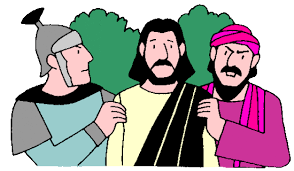
At this point, Jesus calmly surrenders himself to the soldiers. Tradition says Jesus was bound with such cruelty that it drew blood and having bound his hands behind him, the soldiers put an iron chain around his neck and dragged him along by the chain.
Jesus was bound like a runaway slave, in order to humiliate and disgrace him. His captors did everything in their power to inflect pain upon him. They did not treat him as 'innocent until proven guilty'; they instantly treated him as a condemned man who deserved punishment and death.
This was the day that the kingdom of Satan was waiting for. Satan thought he was going to defeat Almighty God. Drunk with anticipation of victory, he and his demon hordes reveled in delight as they influenced the soldiers and the religious leaders to abuse Jesus with the utmost cruelty.
Satan was right about one thing; this was a day of victory - for Jesus Christ our King!
Although the soldiers did not acknowledge it, it wasn't the cords that held Jesus in their power, it was his own will/determination. He could have slain them all with just a word and escaped if he chose to.
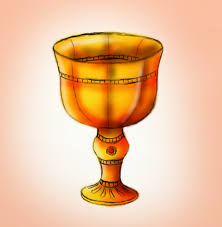
But he didn't. He had already made up his mind to embrace the will of his Father and drink the cup of suffering which would result in our salvation (John 10:18).
As one commentator so eloquently put it, 'He was bound that you and I might be set free from the bondage of sin'.
John 18:13 – First they led him to Annas, for he was the father-in-law of Caiaphas, who was high priest that year.
According to the book of Nehemiah, the city of Jerusalem had ten gates. The easiest and quickest way to get from the Mount of Olives into the City of Jerusalem was through the Sheep Gate (Nehemiah 3:1).
This gate was so named because it was the closest gate to the temple. Sheep (and other animal sacrifices) were brought into the city by this route. The sheep market was located near this gate, as was the pool where temple animal sacrifices were washed.

We can't help but notice that as they led Jesus from the garden to the high priest, they took him along the exact same route that hundreds of Passover lambs had taken over the years. The soldiers were truly leading him as a lamb to the slaughter (Isaiah 53:7, Acts 8:32).
By this time, it was well after midnight, and the common practice would have been to place Jesus in jail overnight, until court (the Sanhedrin) convened the next day.
But the religious leaders did not wait. What was the big hurry? Perhaps they feared some kind of public rescue or maybe they were just anxious to condemn Jesus, their sworn enemy. We don't know for sure, but in either case, the religious leaders had Jesus brought immediately to Annas.
Who was Annas?
Scripture tells us that he was a former high priest. Now if that seems odd to you, then award yourself a bonus point or a piece of candy, if you have one!
As you recall from your Old Testament studies, there should never be a 'former' high priest. When God set up the function of the temple, he declared that once a man was appointed as the high priest, he remained in that office until his death. Then the office passed down to his first-born son, who passed it down to his first-born son, and so on.
So how is this situation possible?
Well remember, Jerusalem wasn't really a peaceful place. The Jews hated Roman authority and sedition was always bubbling just under the surface, especially in Jerusalem. The Romans, who had no intentions of losing power, were always looking for various ways to keep the Jews under control. Since the high priest was the most powerful position in the Jewish nation, they sought to control that office.

So instead of the priesthood passing down the generations as God had decreed, the Romans rulers began to dethrone the high priest at will. Under their control, the high priestly office was bought for money, given as a favor, revoked as punishment, or awarded to those who supported Rome.
Obviously, at some point, Rome had replaced Annas as the high priest. But don't feel too sorry for him. He was still very active in the Jewish nation and he still wielded a great amount of authority.
- He was allowed to keep the title of high priest, which still gave him automatic influence and authority with the common Jews.
- He was a member (and likely the head/president) of the Sanhedrin, the Jewish ruling body.
- He had five sons who were successively named as the high priest, and his son-in-law currently filled the office.
The question is, why bring Jesus before Annas, instead of straight to Caiaphas, the current high priest?
It is likely that Jesus was taken before Annas as a token of respect to the influential former high priest. It is assumed that he worked hard to have Jesus arrested so he 'deserved' to interview the prisoner.

It seems as if he was responsible for conducting a preliminary investigation of Jesus' doctrine (John 18:19). Jesus would then be turned over to Caiaphas, the legal high priest for 'official' trial in the presence of the Sanhedrin (John 18:24), before being handed over to the Romans to be put to death (John 18:28).
Here is something you might find interesting: Scholars believe that Annas was not planning to attend the late night emergency meeting of the Sanhedrin because he had to rise in just a few hours and go to the temple where he would examine the Passover lambs that were to be sacrificed that day. Each lamb was examined in order to make sure it was without blemish, and thus fit to be sacrificed.
If that is so, then we see the hand of God at work once again – Jesus, the true Passover Lamb, was presented, inspected and approved for slaughter by the rightful high priest of the Jewish nation.
One other point in this narrative needs to be addressed. It is unclear whether Annas and Caiaphas lived in the same house or not. There was a good chance that they did, as they were related and it was a common custom back in that day. If they did have separate homes, that of Annas must have been very close to that of Caiaphas.
John 18:14 – It was Caiaphas who had advised the Jews that it would be expedient that one man should die for the people.
Annas did not detain Jesus and his guards very long. Almost immediately he sent them to Caiaphas, the current high priest.
We are not told how or why Rome chose Caiaphas as the high priest that year, but his role in the death of Christ suggests a wicked heart (Matthew 7:17-20).
Back in chapter 11 of his gospel John informed us that the Sanhedrin had been debating what to do about Jesus. During that time, Caiaphas received a word/revelation from God which he didn't really understand. This is what he said:
John 11:49-50 – Then one of them, named Caiaphas, who was high priest that year, spoke up, "You know nothing at all! You do not realize that it is better for you that one man die for the people than that the whole nation perish."
Despite his position as the high priest, Caiaphas was not very spiritually minded. In fact, he was all about retaining his own position and earthly power as the high priest. His allegiance was to Rome, not to God.
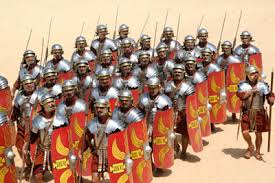
He assumed that the revelation of God applied to the current political situation of the Jews. He interpreted it to mean that Jesus should publicly die to serve as an example/deterrent to any future mutinies or rebellions among the Jewish people. (Rome was more than ready to slay the Jews if they got out of control; this actually occurred in AD 70.)
We can easily read between the lines and see that because of this belief, Caiaphas could not be an impartial judge in the case of the Jews versus Jesus. His mind was already made up; he was convinced that Jesus should die before he even heard the facts of the case. Therefore, any trial that Jesus received was just a sham.
I want to point out that God did not force Caiaphas to make a wicked decision because it was his will for Jesus to die. Rather, (as in the case of Judas), Caiaphas was already a wicked man, so God allowed him to have the position of high priest that year, knowing the decision he would render.
John 18:15-16 –Simon Peter followed Jesus, and so did another disciple. Since that disciple was known to the high priest, he entered with Jesus into the courtyard of the high priest, but Peter stood outside at the door. So the other disciple, who was known to the high priest, went out and spoke to the servant girl who kept watch at the door, and brought Peter in.
John could have spared us all a lot of time and confusion if he had just named 'the other disciple'! (Maybe we should talk to him about that in heaven one day!) In the meantime, we will discuss the possibilities of this mysterious disciple:
Some people believe that the other disciple is actually the apostle John, the writer of this gospel. This theory is based on the fact that John often speaks of himself in the third person, without mentioning his own name (John 13:23, John 19:26, John 21:20).
However, there are difficulties with this explanation.
First of all, although John frequently speaks of himself in the third person, he normally identifies himself as 'the disciple whom Jesus loved', which is not the case here.
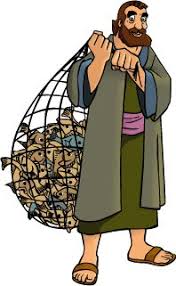
Second, John was a common fisherman (strike one) from Galilee (strike two) and a close associate of Jesus (strike three). The Jews of social prominence in Jerusalem would never have had him as a close personal friend (to say the least).
Third, the scripture indicates that the mystery disciple was comfortable being in the house of the high priest. He was confident in speaking to the servants and having Peter admitted to the grounds. Based on the apostle John's close association with Jesus, it would be very strange for him to be such a visitor in the house of Caiaphas.
Nevertheless, people who support this theory point out that God works in mysterious ways and if he wanted the apostle John to be an eyewitness to these events, he could have made this happen.

However, assuming it isn't John, who else could the mystery disciple be?
Well, it would need to be someone who has these qualifications:
- He is a believer in Christ, but not one of the twelve.
- He is most likely from Jerusalem.
- He is wealthy and socially connected.
- He knows Caiaphas well enough to be comfortable asking him for a personal favor – to allow Peter to come into the courtyard.
Based on these criteria, the mystery disciple is often believed to be the unnamed owner of the house in which Jesus and the disciples just ate the Passover meal. Supposedly, John does not mention his name because he was still alive at the time this gospel was written.
Despite all the conjecture, here is what we know for sure: Scripture simply does not give us enough information to identify this man. Therefore, we can correctly conclude that his identity doesn't really matter; it is not a focal point of this bible narrative.
Regardless of the identity of the 'other disciple', the end result was that Peter was admitted to the outside court of the house of Caiaphas.
John 18:17 – The servant girl at the door said to Peter, "You also are not one of this man's disciples, are you?" He said, "I am not."
But sadly, as we will discuss in our next post, Peter is in the wrong place at the wrong time. Temptation immediately assails him on his way in the door/gate to the high priest's estate.
Peter is confronted by the lowest, lest important and least threatening person present – an older female household servant. She has no power, no authority and poses no physical threat to Peter. She doesn't even accuse him of anything. She only identifies him as a possible disciple, based on his friendship with the unnamed man. Yet her words cause Peter to tremble and deny Christ in fear (Matthew 26:70, Mark 14:67, Luke 22;56).
Thus, all his foolish boasting exposed:
Matthew 26:35 - Peter said unto him, Though I should die with you, yet will I not deny you.
(See also Matthew 26:33). Peter declared that he would prove to be a courageous and valiant champion for Christ, able to meet death with confidence and be faithful to Christ no matter what the cost. He thought he was a spiritual Superman, but this insignificant maid was his kryptonite!
John 18:18 – Now the servants and officers had made a charcoal fire, because it was cold, and they were standing and warming themselves. Peter also was with them, standing and warming himself.
At this point, the Roman guards had probably been released. The servants mentioned here were those assigned to the household of Caiaphas and the officers were temple servants. The group is gathered around a fire.
According to the architecture of that day, this estate would have had a street door or gate. This was where the maid was stationed; she admitted or denied people onto the grounds of the estate.
Once inside the gate, visitors found themselves on what we would call a patio – a large roofless rectangular shaped space paved with flagstones. It was sometimes referred to as a 'court' or 'hall'. The firepit was located in this area.
At the upper end of this space was the open chamber in which the trial was held.
Additionally, Mark indicates that the chamber may have been raised slightly above the court possibly accessed by a short flight of stairs (Mark 14:66). The court would have been visible from the chamber.
Since the 'other disciple' has been admitted into the trial chamber, Peter is essentially alone; he is the only believer in the court. Fear keeps him from pushing forward for a front row view of the proceedings, and since it was obviously cold that night, Peter immediately goes to the fire to warm himself and hopefully blend into the crowd as he waits to see what will happen.
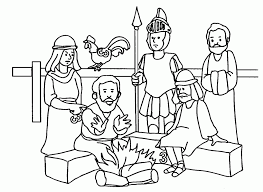
Although we don't know for sure, the conversation around the fire most likely centered around the night's events. The enemies of Christ were probably praising the religious officials and condemning Jesus as a heretic. Yet, Peter stands among them silent.
At the same time Peter is denying Christ, the high priest is engaged in falsely accusing and judging him:
John 18:19 – The high priest then questioned Jesus about his disciples and his teaching.
EVERYTHING about the trial of Jesus was a gross miscarriage of justice.
According to the Talmud, 'Criminal processes can neither commence nor terminate but during the course of the day. If the person be acquitted, the sentence may be pronounced during that day, but if he be condemned, the sentence cannot be pronounced till the next day. But no kind of judgment is to be executed, either on the eve of the Sabbath, or the eve of any festival'.
But the Jewish religious leaders are not going to allow a little thing like the law to get in the way of their plans.
Now that they have finally achieved their goal of arresting Jesus, they need to charge him with something. Since he hasn't done anything wrong, it is going to be difficult to find a charge that will stick. Their task is made even more difficult because they law required at least two witnesses (Deuteronomy 17:6) for an accusation to be confirmed and they had none!
John 18:20 – Jesus answered him, "I have spoken openly to the world. I have always taught in synagogues and in the temple, where all Jews come together. I have said nothing in secret."
Nevertheless, they push forward. In their first attempt, they question Jesus about his disciples. They were trying to see how many followers he had and how powerful they were. If they could prove he had a strong and zealous faction of followers who wanted to make him their king, they might be able to charge Jesus with rebellion/treason against Caesar – a charge that carried the death penalty.
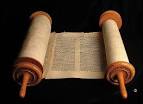
Their next attempt was to charge him with teaching doctrines which subverted Mosaic Law. If they could prove this charge, it would make Jesus a false prophet – a charge that also carried the death penalty (Deuteronomy 13:5, 9-10).
Either conviction would have fit their purposes. (Their purpose being for him to die, in accordance with the views of Caiaphas).
These haughty men still believed that they were far superior and wiser than Christ. They expected to trap him in his words or forcibly extract a confession from him which could then be used to condemn him. This would have made their jobs much easier, as a confession would not require witnesses.
John 18:21 – "Why do you ask me? Ask those who have heard me what I said to them; they know what I said."
But these foolish men could never trap Jesus. You would think that they would have already learned that, based on prior interactions with him (Matthew 22:15-22).

Jesus had done nothing that was sinful or wrong in any way. He taught openly in the temple, in the synagogues and in other public places in front of enormous crowds (Proverbs 1:19-21, Isaiah 45:19). Anyone, including the high priest, could have come and listened to him at any time. If there had been a problem with his doctrine, they could have confronted him publicly while witnesses were present. Furthermore, every synagogue had a leader or officer. If Jesus had been preaching a false doctrine, he would certainly have been confronted about it multiple times; it would have been a well-known fact.
There is also the matter of the miracles of Christ. If the religious leaders had actually taken time to ask people about Jesus and his doctrine, they would once again have been confronted with the testimony of his numerous miracles. It would have been irrefutable proof that he was the Messiah, approved of God. For this reason, the religious leaders don't even bring up the subject.
Because he had perfectly discharged his duties as a teacher of God, Jesus does not attempt to defend himself here in the court. Instead, he reproves the high priest who tries to cast doubt and suspicion upon a matter that is perfectly well known to all the Jews.
John 18:22 – When he had said these things, one of the officers standing by struck Jesus with his hand, saying, "Is that how you answer the high priest?"
Just who is this haughty officer of the court, who dares to correct the Lord Jesus? His words imply that he considered Jesus a rude and ignorant prisoner who was not good enough or wise enough to speak to his master.
It's rather disgusting to see how this man abuses Christ just to gain the favor of his boss by acting jealous for his honor and dignity.
This man's actions were wrong on every level:
- It was insolent for a mere servant to strike a public figure; especially one revered by much of the nation.
- It was cowardly to strike a bound man who could not defend himself.
- It was unjust to strike a defendant who was giving testimony to the court.
Had this been a fair and legitimate trial, the court would have taken action against this man, however, they completely ignore his action and continue on with their treacherous business.
But Jesus was not caught off guard by this undeserved blow. It had been predicted by God long, long ago:
Job 16:10 - They have gaped upon me with their mouth; they have smitten me upon the cheek reproachfully; they have gathered themselves together against me.
(See also Isaiah 50:6, Micah 5:1).
John 18:23-24 – Jesus answered him, "If what I said is wrong, bear witness about the wrong; but if what I said is right, why do you strike me?" Annas then sent him bound to Caiaphas the high priest.
This is a wonderful display of the meekness and forbearance of Christ. We all know that Jesus could have responded to this blow by striking this man bind, forcing him to the ground or even killing him. It would only have taken a word from him to do this and though his hands were bound, his mouth was free.

But again, Jesus had already determined to drink the cup of suffering given to him by the Father. He gives us an example of turning the other cheek and refusing to render railing for railing (I Peter 3:9).
This provides practical instruction for us. We are not to avenge ourselves. We should appeal to the established courts for the judgment of our adversaries. If this is not possible or justice is not served, scripture makes it plain that the right for vengeance belongs to God alone; he will repay our enemies for us (Romans 12:19).
Let me offer you some encouragement and some relief:
The Roman soldiers bound Jesus with ropes and chains. They thought they were controlling him, but they were not. The significance of this does not escape us – Jesus is all powerful. He allowed himself to be bound and fettered so that he could rescue us from our inescapable bonds/chains of sin.
But sometimes we limit the deliverance of Christ to just the forgiveness of our sin, though it includes so much more!
For instance, scripture says that by the stripes he endured during the crucifixion, we are healed (Isaiah 53:5). This includes physical healing, mental healing, emotional healing, healing for relationships and every other kind of healing you might need.
So let me give you this encouragement today: Whatever healing you need in your life today, Jesus has already paid for it! Receive it by faith, just as you did forgiveness of sin.
Let me offer you some strength:
It is tempting to hold a grudge or take revenge on someone who opposes us (at least it is for me). Our fallen nature would love to inflict hurt those who hurt us. But if you do, you will regret it.
God very emphatically states that revenge is not an option for his children. Any 'payback' that occurs will come directly from God; he does not need our help.
Scripture also tells us that, if left unchecked, a grudge can blossom into a spirit of bitterness, which in turn establishes a bondage in our lives. It will rob us of peace, freedom and other blessings that God wants to pour into our lives.
The bottom line is that it isn't worth it!
When someone wrongs you, look at the example of Jesus as he stood in front of the court and was undeservedly hit in the face by a servant. He reacted with meekness and patience. Through the power of Holy Spirit, we too can find the strength to react in the same way. This will be a blessing to us while also giving God an opportunity to minister to our enemies as well.
